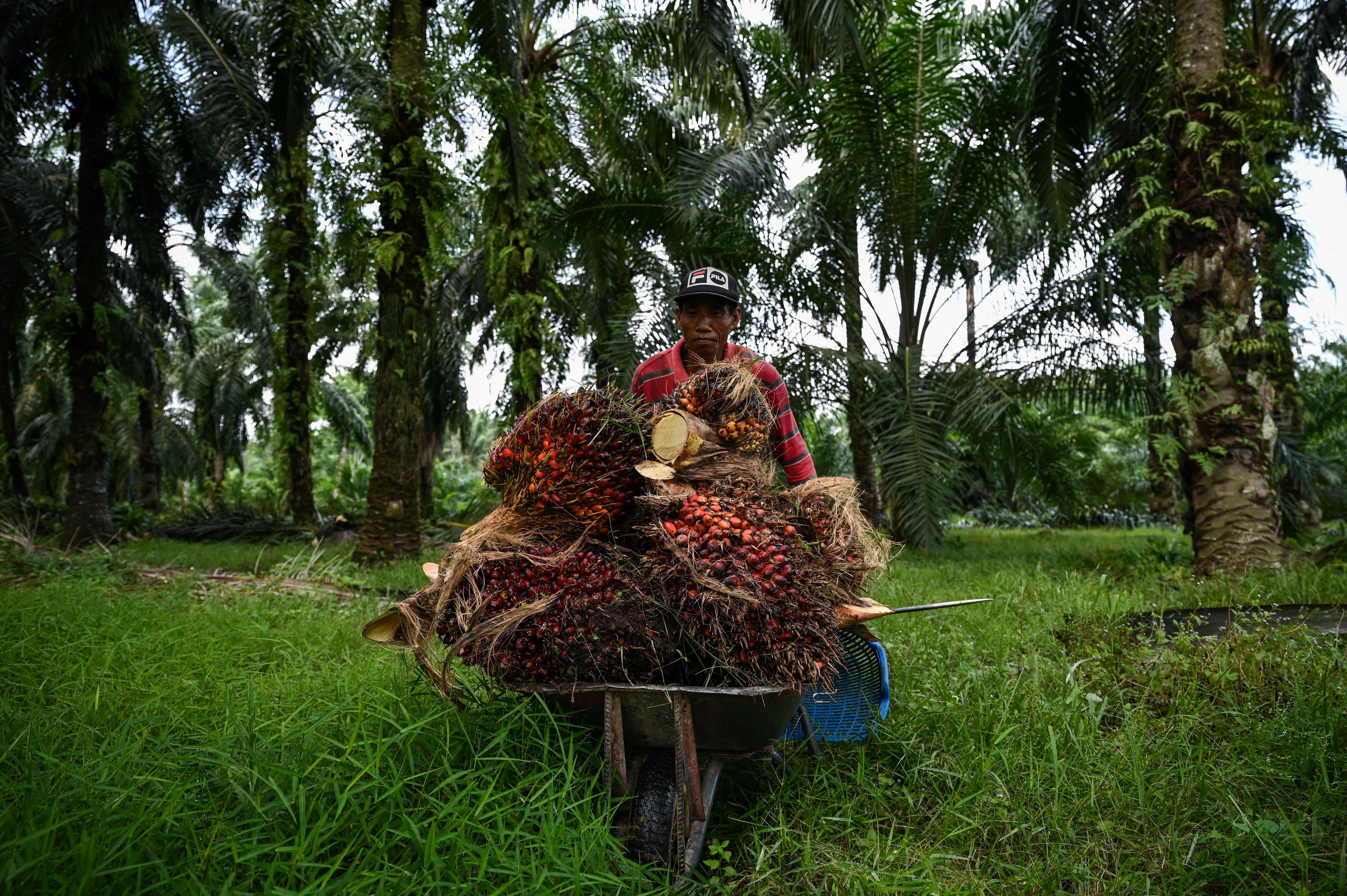 This picture taken on June 30, 2022 shows a foreign worker pushing a wheelbarrow full of palm oil fruits in Ijok, in Malaysia's Selangor state. (PHOTO / AFP)
This picture taken on June 30, 2022 shows a foreign worker pushing a wheelbarrow full of palm oil fruits in Ijok, in Malaysia's Selangor state. (PHOTO / AFP)
KUALA LUMPUR – Malaysia on Thursday said it was disappointed over a European Union law banning imports of commodities linked to deforestation, fearing a hit to its exports of palm oil to the bloc.
On Wednesday, the European Parliament approved a landmark law that will require companies that sell goods into the European Union to produce "verifiable" information proving their goods were not grown on land deforested after 2020, or risk hefty fines.
Malaysia said the law was a "deliberate effort" to increase costs and barriers for its palm oil sector — a key source of export revenue for the Southeast Asian country
The law will apply to soy, beef, palm oil, wood, cocoa, coffee, rubber, charcoal, and derived products including leather, chocolate and furniture.
Malaysia said the law was a "deliberate effort" to increase costs and barriers for its palm oil sector — a key source of export revenue for the Southeast Asian country.
Malaysia is the world's second biggest exporter of the oil, used in everything from lipstick to pizza, after Indonesia.
"The (law) is unjust and serves primarily to protect a domestic oilseeds market that is inefficient and cannot compete with Malaysia's efficient and productive palm oil exports," Fadillah Yusof, Malaysia's Minister of Plantation Industries and Commodities, said in a statement.
Malaysia is working with Indonesia to consider an appropriate response to the law, he said, adding that Malaysia remains open to talks with the European Union to address concerns over the regulation.
ALSO READ: M' sia palm oil, rubber farmers contest EU deforestation law
Malaysia has said the law will specifically affect small farmers as they will be unable to meet the cost of compliance.
Smallholders account for 26 percent, or around 1.5 million hectares of oil palm planted area in Malaysia. Globally, more than seven million smallholders cultivate palm oil for a living and rely on the commodity to escape poverty.